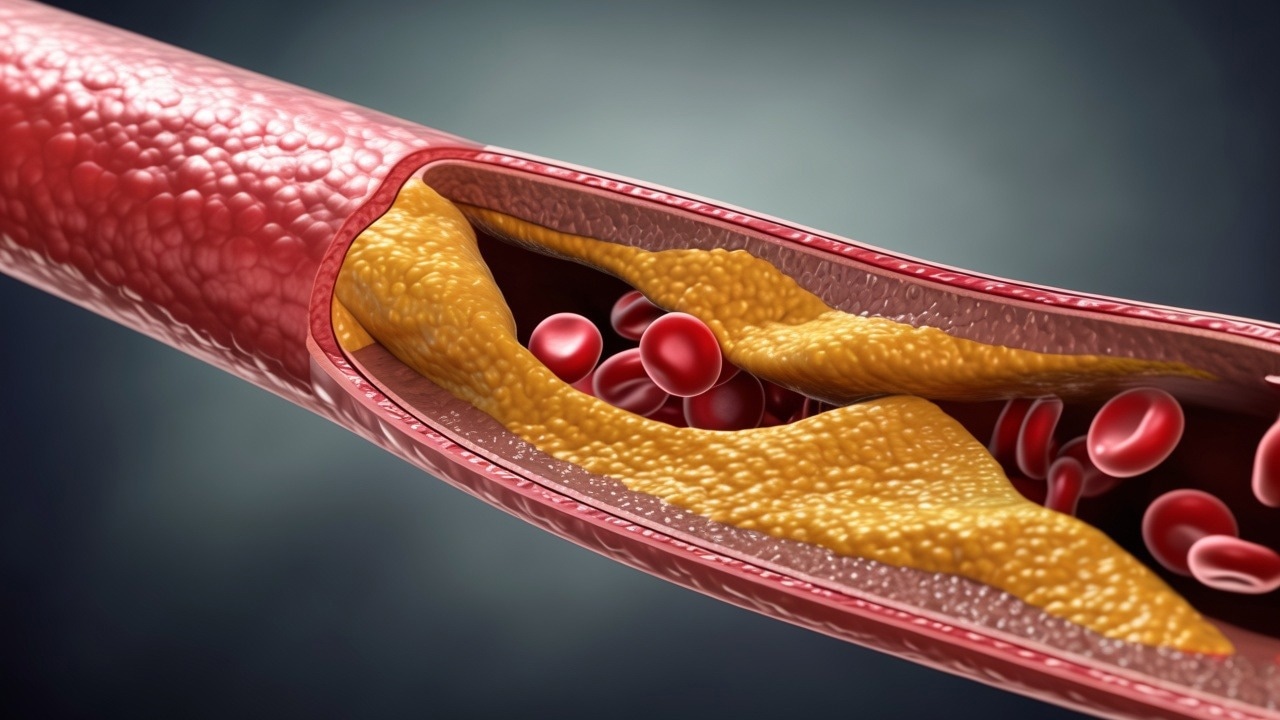New research shows that maintaining LDL-C levels below 70 mg/dL is associated with a significantly lower risk of all-cause and Alzheimer’s-related dementia—even among statin users.

Study: Low-density lipoprotein cholesterol levels and risk of incident dementia: a distributed network analysis using common data models. Image Credit: Shutterstock AI Generator / Shutterstock.com
While maintaining low levels of low-density lipoprotein cholesterol (LDL-C) levels is crucial to mediate the risk of future cardiovascular events, its impact on dementia risk remains unclear. A recent study published in Journal of Neurology, Neurosurgery & Psychiatry investigates the potential association between LDL-C levels and the risk of dementia.
How does cholesterol impact dementia risk?
Published observational studies suggest that very low LDL-C levels could cause cognitive decline. However, recent meta-analysis findings have comprehensively challenged these findings.
Similarly, recent clinical trials, including FOURIER and ODYSSEY, have reported that even a significant reduction in LDL-C levels, even as low as 30 mg/dL (0.8 mmol/L), does not increase the risk of dementia or other cognitive outcomes.
These contradictory results warrant more targeted research to reevaluate LDL-C guidelines and their impact on cognitive decline.
About the study
The current study explored the association between LDL-C levels and the risk of developing dementia including all-cause and Alzheimer’s disease-related dementia (ADRD) using a large observational cohort. The researchers also determined whether optimizing LDL-C levels using statin therapy could prevent the development of dementia.
All relevant data were obtained from the Observational Medical Outcomes Partnership (OMOP) Common Data Model (CDM) and Observational Health Data Sciences and Informatics (OHDSI) networks. Eligible study participants were 18 years or older and outpatients of the hospital between November 1986 and December 2020.
The index date was set at the day on which the patient’s LDL-C levels were measured, with the time-at-risk (TAR) set to one day after the index date. TAR started 180 days from the beginning of the cohort and ended at 99,999 days or until the observation period ended.
To minimize biases, such as immortal time bias and duplication, both cohorts were observed for a 180-day period. Any study participant included in both OMOP-CDM and OHDSI cohorts or had a history of ADRD were excluded from the analysis.
LDL-C levels below 70 mg/dl linked to lower dementia incidence
Out of 12,233,274 patients from both cohorts, 903,711 patients fulfilled the eligibility criteria. Among these individuals, 192,213 participants exhibited LDL-C levels below 70 mg/dL or 1.8 mmol/L, whereas 379,006 patients reported LDL-C levels above 130 mg/dL or 3.4 mmol/L. After propensity score (PS) matching at a 1:1 ratio, a total of 108,908 matched pairs from each group were included in the final analysis.
Cox proportional hazards regression analyses were conducted to compare ADRD and all-cause dementia risk between groups with LDL-C levels below 70 mg/dL (1.8 mmol/L) and above 130 mg/dL (3.4 mmol/L) within the overall population.
Lower LDL-C levels were associated with a reduced risk of all-cause dementia and ADRD at 26% and 28%, respectively, as compared to higher LDL-C levels. LDL-C levels below 55 mg/dL or 1.4 mmol/L were also associated with an 18% reduced risk of all-cause dementia and ADRD as compared to higher LDL-C levels of 130 mg/dL or greater.
Although these results were similarly observed with 1:4 PS-matching groups, LDL-C levels below 30 mg/dL were not associated with a reduced risk of dementia as compared to LDL-C levels above 130 mg/dL group.
Among patients who were prescribed statins, LDL-C levels below 70 mg/dL were associated with a significantly lower risk of all-cause dementia and ADRD by 13% and 14%, respectively, as compared to statin users with LDL-C levels exceeding 130 mg/dL. This pattern was similarly observed in 1:4 PS-matched groups.
However, LDL-C levels below 55 mg/dL and 30 mg/dL did not lead to a statistically significant reduction in the risk of dementia as compared to LDL-C levels of 130 mg/dL or greater.
The study findings indicate that statin use did not lead to a significant reduction in dementia risk in patients with LDL-C levels less than 55 mg/dL. Comparatively, among statin users with LDL-C levels less than 70 mg/dL, a significant reduction in all-cause dementia risk and ADRD by 13% and 12%, respectively, was observed as compared to non-users.
Statin use among individuals with LDL-C levels higher than 130 mg/dL was associated with a reduced risk of all-cause dementia and ADRD by 7% and 10%, respectively, as compared to non-users. This reduced risk was observed in both lipophilic and hydrophilic statin users.
Conclusions
Individuals with LDL-C levels below 70 mg/dL or 55 mg/dL at baseline were at a significantly reduced risk of developing all-cause dementia and ADRD as compared to those with high LDL-C levels. This association persisted even among statin users.
These findings support the necessity of targeted lipid management as a preventive strategy against dementia.”
Journal reference:
- Lee, M., Lee, K. J., Kim, J., et al. (2025) Low-density lipoprotein cholesterol levels and risk of incident dementia: a distributed network analysis using common data models. Journal of Neurology, Neurosurgery & Psychiatry. doi:10.1136/jnnp-2024-334708